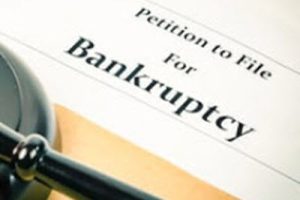Top Five Illinois Bankruptcy Exemptions

When divorce, job loss, and other financial storms hit, bankruptcy helps people regain control over their own finances. Since this control means little without additional property protections, Illinois law also contains a number of generous exemptions. Most of them are in Section 1001 of the Illinois Code of Civil Procedure. These exemptions prohibit creditors from seizing your property. The exemptions also prevent trustees (people who oversee bankruptcies for judges) from liquidating this property.
Financial control and property protections are just two of the benefits of bankruptcy. Others include the Automatic Stay, which stops creditor adverse actions, and unsecured debt discharge. Furthermore, a Chicago bankruptcy lawyer can unlock some advanced bankruptcy features which could, in many cases, save your family thousands of dollars a year. Additionally, a lawyer knows how to maximize the available benefits of bankruptcy, so you are better able to withstand future financial storms.
Home
The family home is usually a family’s largest financial asset. Additionally, this property has an emotional value which is impossible to quantify in monetary terms. At first blush, the state’s $15,000 home equity exemption seems to offer little protection. But you should never judge a book by its cover.
Mortgage loans are amortized. The bank applies almost all payment funds to prepaid interest before it applies funds to equity. Therefore, unless you have paid off more than half the loan, you probably have almost no financial equity in your home.
We mentioned advanced bankruptcy features above. One of them is a tenancy of the entirety. If one spouse “owns” the home and the other spouse is a “tenant,” neither creditors nor the trustee can touch your home, regardless of the amount of equity. It’s illegal to seize one person’s property to pay another person’s debts.
Motor Vehicle
The home equity financial principles discussed above apply to motor vehicle equity. Additionally, most vehicles lose most of their value in about three or four years. So, if you drive a used car, its Blue Book value, which is the only figure that counts for bankruptcy purposes, might be almost zero.
Some advanced options apply here as well, such as the redemption option. If you are underwater on your vehicle loan, you may be able to pay the current fair market value and own the vehicle free and clear.
Wildcard
Many bankruptcy debtors own property like motor boats and savings accounts which the regular exemptions do not protect. Illinois has a $4,000 wildcard exemption which shields such property from trustees and creditors.
Personal Property
Illinois law protects jewelry, clothes, appliances, electronics, and almost all other personal property items. Other exemptions could apply as well, such as a tools of the trade exemption.
Regarding all personal property, including property under the wildcard exemption’s protection, the as-is cash value rule applies. For example, Fred might have paid $3,000 for a large screen TV. This TV set might fetch about $300 in a garage sale, even if it is practically new. That garage sale value, not the fair market or any other value, must be listed in the bankruptcy schedules.
Government Benefits
This category includes almost all government benefits, such as teacher retirement payments, unemployment benefits, Social Security bandits, and VA disability benefits. Many families depend almost entirely on these benefits to make ends meet.
Since the government usually pays benefits monthly, many people assume these checks are nonexempt income. But they are exempt assets. Furthermore, unlike motor vehicles or home equity, there is no dollar limit. These assets are 100 percent exempt regardless of the size of a monthly check.
To maximize this exemption, it’s usually a good idea to keep government benefit payments and other payments in separate accounts. Always speak to a bankruptcy lawyer before you move money prior to filing bankruptcy, as there could be some legal implications for your case.
Count on Hard-Working Cook County Lawyers
Bankruptcy protects your most treasured financial assets. For a free consultation with an experienced bankruptcy attorney in Chicago, contact the Bentz Holguin Law Firm, LLC. Convenient payment plans are available.


